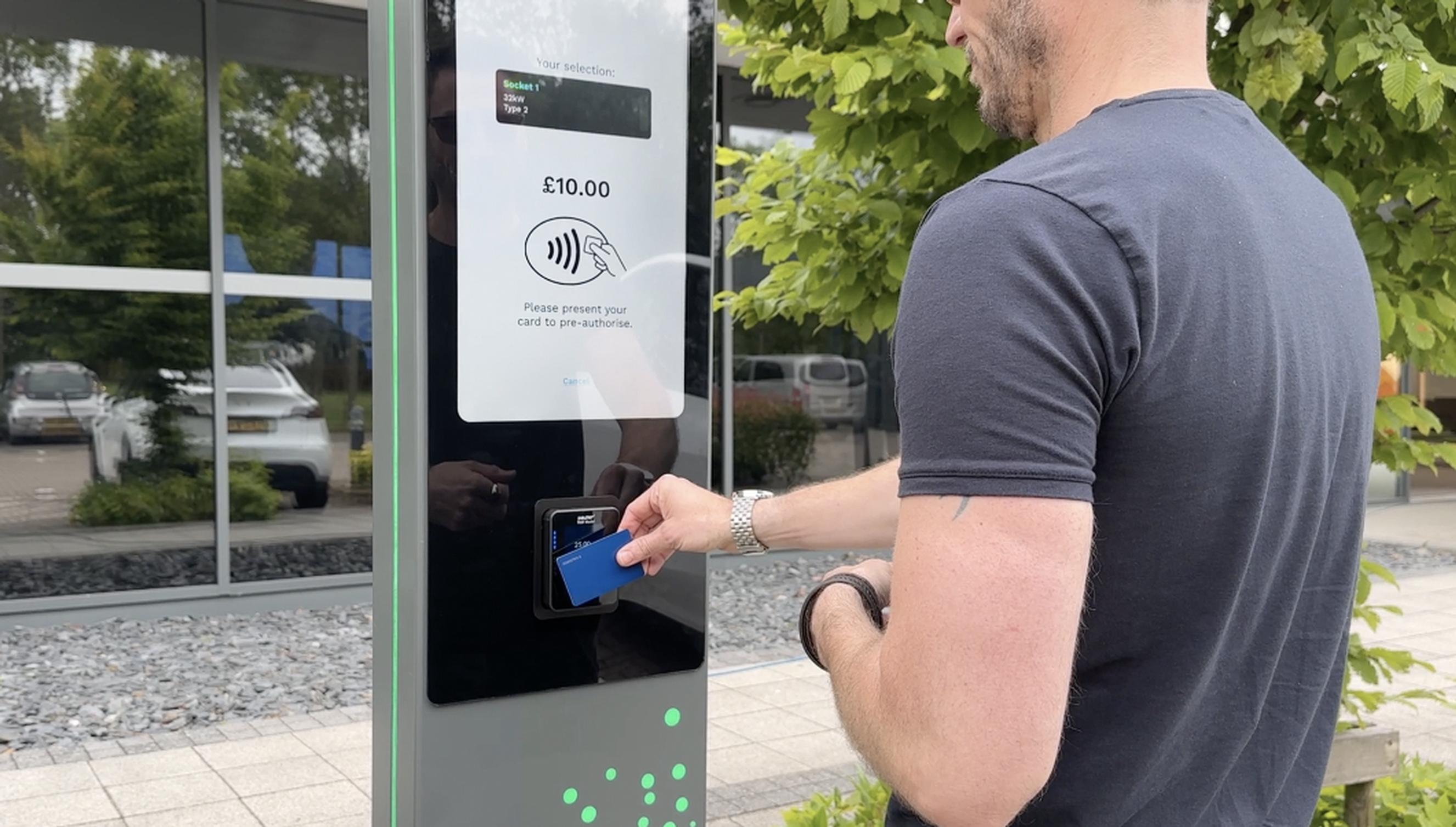
Drivers of electric vehicles have long experienced concerns around battery range and the availability of chargepoints. Today, they face an additional uncertainty about how much they’ll pay each time they charge their vehicle. One particular area that is exacerbating this payment anxiety is a lack of consistency among chargepoint operators when it comes to pre-authorisation.
Pre-authorisation is the process where an amount of money is reserved against a driver’s debit or credit card, ostensibly to prove that the card is valid and ensure sufficient funds are available to be debited from it later. But different operators may reserve different amounts on drivers’ accounts, and delays in returning reserved funds can vary from one card issuer to another, leaving EV drivers facing often unpleasant surprises when they check their available bank balance or receive payment alerts from their mobile banking app. Indeed, drivers can confuse pre-authorisation for payment, and believe they have been charged twice.
While pre-authorisation is important to chargepoint operators, there’s clearly an argument to be made for a standardised process, such as incremental authorisation, in which the pre-authorised value is increased progressively, in line with power consumption, to help drivers avoid such surprises.
Pre-authorisation is nothing new. Many will have experienced it at self-service fuel pumps and when booking hotels. It exists to protect merchants from fraud, such as non-payment following the delivery of a product or service. By “pre-authorising” and “holding” an amount on a customer’s credit or debit card, it confirms the card is valid and reserves funds to ensure the customer covers the cost of future spend.
The amount held is at the merchant’s discretion and, to minimise the risk to the merchant of non-payment, can often be a high enough value to cover the potential highest cost the customer may end up paying. This isn’t necessarily the case with chargepoint operators, however. They typically determine this amount based on the risk, taking into consideration factors such as the type of charger – whether it’s AC or DC, its location, and empirical evidence of past charges. But, given the significant variation in average transaction values between high-powered destination-based DC chargers and 7kw AC street-chargers, for example, it simply wouldn’t be appropriate to pre-authorise a standard amount.
As a result, some chargepoint operators will pre-authorise as little as £1 per charge, while others will hold by up to as much as £75. The issue is that EV drivers are unlikely to know which value an operator will hold until it shows up on their bank statement as a “pending transaction” or as a payment alert.
The inconsistency around the amount charged is only part of the problem. Some operators will pre-authorise on every attempt to charge a vehicle and won’t use a previous pre-authorisation even though it still might be valid. Therefore, if a charger fails to start on request and the customer tries again, a second pre-authorisation amount will be held.
Matters are complicated further by the speed at which pre-authorisation amounts are returned to the cardholder which, in some cases, can take many days. The issue here is that this is a back-office operation that relies on the payment provider and the card issuer. It’s important, then, to ensure that payment provider can release cardholders’ funds immediately.
Fortunately, following its creation by Visa in 2019, a new merchant category code for EV charging – MCC 5552 – requires payment providers to instruct the immediate release of pre-authorisation amounts to a customer’s account. And, perhaps more importantly, MCC 5552 will go a long way to overcoming the current disparity in pre-authorisation amounts and refund timescales by introducing incremental authorisation.
A pragmatic solution – given the huge variability in charging offers and costs - could be incremental authorisation, which dynamically secures funds throughout a charging session. Beginning with a lower initial pre-authorisation amount, the process progressively increases that amount in line with power consumption, thereby preventing large reservations against the driver’s account at the end of the session.
Based on average transaction values of between £16 and £19, pre-authorisation might start at £1, to check the validity of the driver’s card and ensure the charger can be started, then increase to £15, and then again to £30, to limit the risk for the chargepoint operator.
In the event of a short stop, for example, where the final cost to charge was around £15, there’d be no risk of a pre-authorisation reserve of £75. Chargepoint operators would benefit, too, as drivers become more comfortable with lower – and then incremental authorisation amounts – and, in turn, become more loyal to those operators that they know they can trust not to place large and unpredictable charges on their card.
A lack of consistency and standardisation means EV drivers are understandably concerned about the amount of money being held, and the length of time it’s held for. It’s hoped that recent developments such as the introduction of MCC 5552, advances in banking technology that allow the instant release of these monies and, of course, payment providers offering incremental authorisation, will go a long way to alleviating that anxiety for the benefit of drivers and chargepoint operators alike.
Keith Brown is managing director at Paythru
https://paythru.com/
TransportXtra is part of Landor LINKS
© 2026 TransportXtra | Landor LINKS Ltd | All Rights Reserved
Subscriptions, Magazines & Online Access Enquires
[Frequently Asked Questions]
Email: subs.ltt@landor.co.uk | Tel: +44 (0) 20 7091 7959
Shop & Accounts Enquires
Email: accounts@landor.co.uk | Tel: +44 (0) 20 7091 7855
Advertising Sales & Recruitment Enquires
Email: daniel@landor.co.uk | Tel: +44 (0) 20 7091 7861
Events & Conference Enquires
Email: conferences@landor.co.uk | Tel: +44 (0) 20 7091 7865
Press Releases & Editorial Enquires
Email: info@transportxtra.com | Tel: +44 (0) 20 7091 7875
Privacy Policy | Terms and Conditions | Advertise
Web design london by Brainiac Media 2020